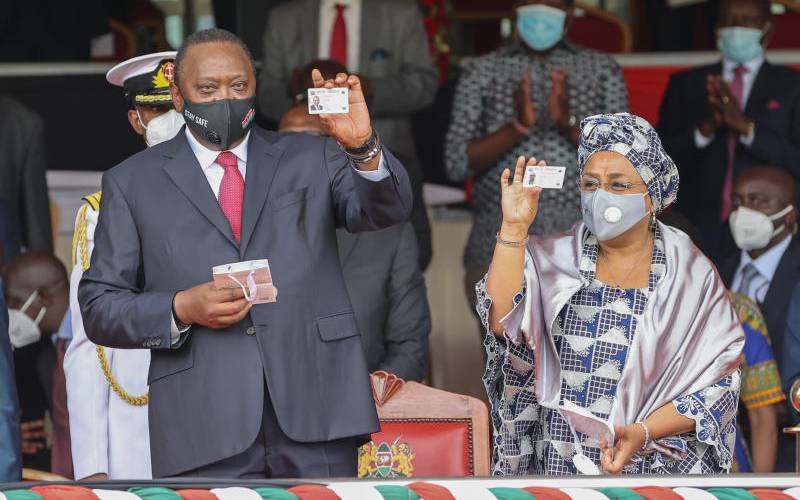×
The Standard e-Paper
Join Thousands Daily

President Uhuru Kenyatta and First Lady Margaret Kenyatta receive their respective Huduma Namba card during the 11th Mashujaa Day celebrations at Gusii Stadium, Kisii County. [PSCU, Standard]
Majority of Kenyans are familiar with ‘Huduma Namba and Card’ after the much-talked-about mass registration exercise in 2019. Many people are yet to receive their Huduma Namba cards and there have been several litigations and court orders as different stakeholders got involved.